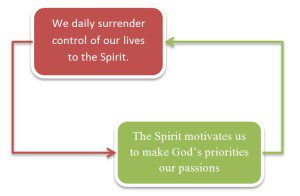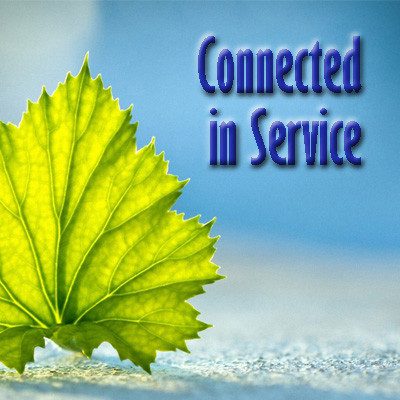Prologue:
We are all busy. We’re all short on time. I think we know what our time is precious, but what are we doing with our time? Are we spending it wisely? How do you spend most of your spare time?
The Point: Serving in the body of Christ is a wise use of our time

Exercise “Time Match”: Divide into 4 groups. Tell each group to come up with a list of things they waste their time doing. Give 1-2 minutes and have them list as many things as possible. Each group is to verbalize their list one by one. Cross out any that match the other group, and the group with the most items left wins.
These items (including the ones that are crossed out) are generally fun and entertaining. The problem is, how does these effective for the kingdom, the “Mission”?
Read: Ephesians 5:15-21
The Root of our problem is a selfish bent, an emphasis on “what I want”. While it is good to be a part of a church that will help us grow in Christ. However, sometimes we cross the line when we make the church all about what it can do for us personally.
Pray: Ask the Holy Spirit would give us a desire to serve in the body of Christ
Part I – Ephesians 5:15-17
We are to pay careful attention to our conduct. Therefore, let us study the “foolishness” a self-serving church. There are 5 behavioral patterns. Note: these patterns can translate into small groups/fellowships, Sunday school, and an individual settings.
- Worship wars: If the style of music, instrumentation, or order of service didn’t suit their preference, church members got angry and demanded change.
- Program driven: Programs became an end instead of a means to greater ministry
- Attitudes of entitlement: Members had an attitude that suggested, “I deserve special treatment”
- Greater concern about change than the gospel: Members got fired up if anything was changed unexpectedly.
- Evangelistic apathy: Members cared more about their own needs than the greater eternal needs of the world and community around them.
To live wisely is to serve others in a way that’s motivated by God’s priorities, not our personal wants and comfort. In order to do that, we have to make our relationship with the Lord our highest priority.
Paul in this verse identified being wise and unwise. Recall that Jesus taught that a wise person would take His words seriously, while a foolish individual would ignore them (Matt: 7:24-27). A wise person use time well, make the most out of every opportunity. In the Greek, making the most of something means buying it up like it’s a bargain that won’t be around long. Therefore, we reflect wisdom when we take the initiative to look for opportunities to serve one another.
In contrast, a person characterized by foolishness (or unwise) would have no grasp of God’s work in the world. Furthermore, a foolish person would have no interest in learning about God’s way.
Part II – Ephesians 5:18
Why is being filled with the Spirit an ongoing process rather than a one-time event?
It is our natural to be selfish. It is our nature to want others to serve us rather than be the servants ourselves. To fix that, we must surrender control to the Holy Spirit. Daily submission to the Spirit helps us bear the fruit of the Spirit – Love, joy, peace, patience, kindness, goodness faith, gentleness, and self-control (Gal. 5:22-23) – in our relationships.

When we live under the influence of the Spirit, we will serve others, give generously, and share our faith rather than focus on getting what we want out of church.
How would you respond? When it comes to church, we often prefer our way and adapt our schedule and involvement to fit our own needs. Two scenarios:
- The Sunday morning worship schedule changed and you will now have to arrive an hour earlier as well as park in a lot that is a couple of blocks away and walk a good 5 minutes to arrive at the church.
- The worship team decided to change all the hymns and use only piano is allowed to accompany the worship.
Paul began with foolish people who submitted to the powerful influence of wine, drunkenness. Drinking gave a temporary escape from the difficulties of each day. Under such influence, people would lose control of their words and actions. The problem is, once the drinking spree is over, the trouble (or whatever that they are escape from) is still there.
Paul contrasted drunkenness with being filled by the Holy Spirit, who is given complete control over oneself. The result from the fruit of the Spirit makes one productive and useful; ultimately glorify the Lord with the service to other.
Part III – Ephesians 5:19-21
What does it mean to submit to each other in the context of a local church?
First of all, being filled by the Holy Spirit will change our actions and attitudes. We experience a genuine appreciation for what God has done in us and through us; we recognize that we’re undeserving recipients of God’s grace and mercy.
- We’re able to speak with one another in the church so each can grow in Christ.
- Sing song together that came from the heart. The music we make has to be a sincere expression of praise to the Lord of His loving presence in our lives.
- Consistent thanksgiving, even in good times or the bad (submitted to the Holy Spirit).
- The focus turns to Jesus Christ, He became the center of our lives.
- The willingness of place the needs of others ahead of our own interests.
What does service looks like?
- Servants don’t make the rules
- Servants don’t pressure others to bow to their opinions
- Servants seek out the will of their master
- Servants don’t command other to follow their preferences and desires
- Servants use the resources they’ve been given to benefit the master’s household, not to make that household their own.
 Jesus set the ultimate example for how to humble ourselves. The cross was not Jesus’ preference (Luke 22:42), but he declined His preference, desires, and comfort – and he did it for our benefit.
Jesus set the ultimate example for how to humble ourselves. The cross was not Jesus’ preference (Luke 22:42), but he declined His preference, desires, and comfort – and he did it for our benefit.
Final Reflection question: Are you a giver or a taker in the church?
Epilogue:
It was a lot of material to cover within an hour, let alone having discussions and open-end questions in between. I had to remove some parts here and there to accommodate for the 1 hour class time. Understanding service is not hard, the willingness of doing so is more difficult. My hope is that the material presented in this class helped to dilute the idea of “being serve by others”, and shift their focus to serve others with a heart of a servant.

One Comment
Great job Gary!